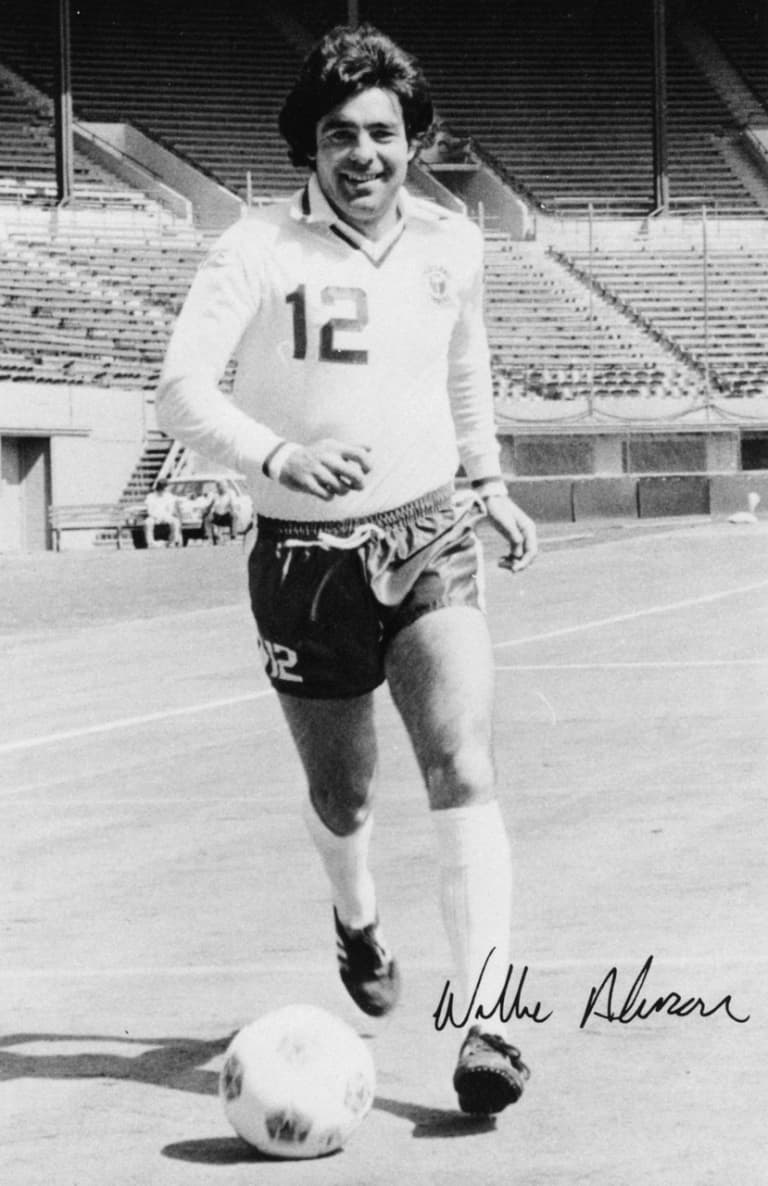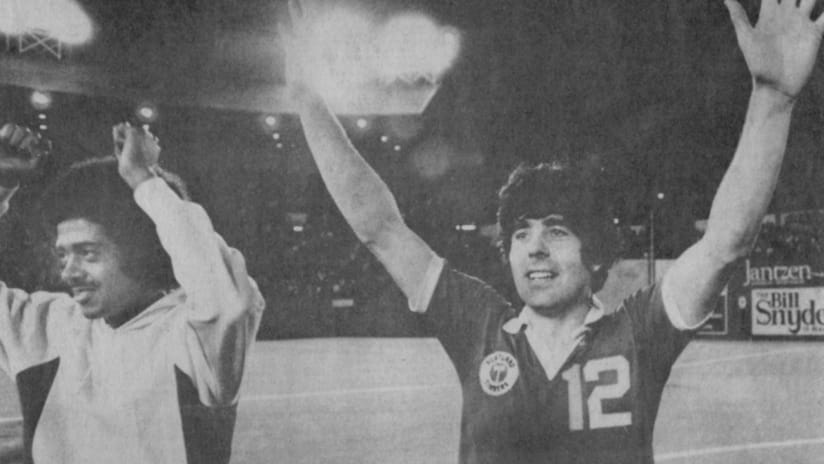Editor’s Note: Throughout the 2015 season, the Portland Timbers have been celebrating their fifth anniversary since arriving in MLS and 40th anniversary since the club's founding in 1975. This Sunday, when the Timbers host the New York Red Bulls at Providence Park (2pm PT, ESPN), Portland will host an alumni reunion honoring past players from all eras of the club.
We’ll be talking with many of the memorable figures from the last four decades in the lead-up to Sunday. Today's feature: NASL attacker Willie Anderson.
PORTLAND, Ore. – In 1975, Willie Anderson was already a legendary soccer player. He had suited up more than 200 times for Aston Villa and over 100 times for Cardiff City. It was while he was with Cardiff City that a future Portland Timbers teammate, Brian Godfrey, first planted the idea in Anderson's mind of coming to the Northwest.
“Hey, you know what I'm doing this summer?” Godfrey asked him over a post-match beer. “I'm going to play in America.”
“Wow! How the hell did you figure that out?” Anderson asked, astonished.
As was the case with nearly every player on the 1975 Timbers roster, the link was Timbers head coach Vic Crowe. Both Godfrey and Anderson had played for Crowe at Aston Villa and Anderson immediately got on the phone with his old coach, who put together a deal to send Anderson to the nascent Portland team.
“I had no clue where Portland was,” Anderson recalled of that time. “I really had no clue about Oregon. I had no idea about what the standards of play would be. I knew it was a new team. That's all I knew. But America was a big attraction for most people back in England, something about America everyone gets interested in.
“I just thought it's like a four-month holiday, paid by somebody else to come visit America.”

From the moment Anderson arrived in Portland, however, he did anything but treat his stint with the Timbers like a holiday. After arriving on a Thursday, Anderson was given a day off to recover from his travel, but Crowe came calling that Saturday, starting the newcomer on the road against the Vancouver Whitecaps.
Anderson assisted on Barry Powell's opening goal in a 2-0 win, but that's not what Anderson remembers from that match.
“I went in the locker room before the game and they give me my uniform and it was number 12 and I got kind of pissed off about that because number 12 in England meant you sat on the bench and were the sub,” he said. “I had a go at Vic about it and Vic said, 'No, that's your number for the rest of the season. That's your shirt. You'll always have that shirt.'”
In his very next game, his first match at home as a Timbers player, Anderson played the hero, scoring the game-winning goal in overtime against a rough Rochester Lancers team that had tried to intimidate the Timbers on their home turf.
“[The ball] sure took a long time to come down,” Anderson told the Oregonian after the game. “I thought for sure someone would come out and block it. I just whacked it...nothing planned or anything. I looked up and it was in the net.”
From that auspicious beginning, Anderson began a Timbers career that would see him appear in 160 career matches for the team, a club record. Anderson ranks second all-time in club history in assists with 53, just two back from all-time leader and former teammate John Bain.
But after a professional soccer career spanning 20 years, the games and the numbers don't much matter to Anderson these days.
“The games don't stick out so much,” Anderson said. “It was the people that you met. It was the beautiful state. It was the after-parties when we were all together, the guys going out. We did everything as a group. The camaraderie was amazing.”
While Anderson briefly returned to Cardiff following the 1975 season before the Timbers purchased his contract ahead of the 1977 NASL season, he always intended to return to America and settle down in Portland, a “big town” that he had grown to love and call home.
“After '75, I was done and dusted,” Anderson recalled. “It was like, 'I'm going back [to Portland] to play and I'm going back there to live and that's how it's going to be.' I just set my mind to it and it worked out.
“I always thought in America you could live a great life,” he continued. “There was so much more to do outside. Oregon was an incredibly beautiful state with hardly any people in it. You could drive to the beach, the mountains. And the people were absolutely wonderful. It was just the more laid back lifestyle for me.”
All these years later, though, Anderson looks back on that magical experience in 1975 as one of the seminal moments of his life.
“The game [against Seattle in the playoffs] where there were 30,000—I've played in games back in England—but the atmosphere there was as good as anything I've played in. When we won it, the crowd went nuts and just invaded the field.
“Playoff time: I think it may have lasted two weeks, three weeks. It was electric, absolutely. The city was just...” Anderson paused to collect himself. “We couldn't go anywhere, it was just amazing, amazing.
“It was just a one-off in your life. You got one thing in your life that you did that stands out, [for me,] it was that '75 season.”












